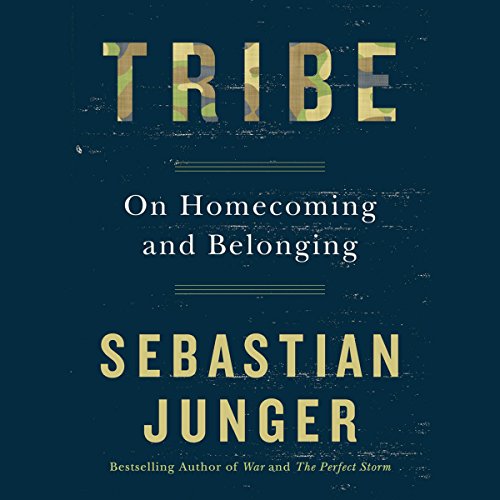
We have a strong instinct to belong to small groups defined by clear purpose and understanding – “tribes”. This tribal connection has been largely lost in modern society, but regaining it may be the key to our psychological survival.
Decades before the American Revolution, Benjamin Franklin lamented that English settlers were constantly fleeing over to the Indians – but Indians almost never did the same. Tribal society has been exerting an almost gravitational pull on Westerners for hundreds of years, and the reason lies deep in our evolutionary past as a communal species. The most recent example of that attraction is combat veterans who come home to find themselves missing the incredibly intimate bonds of platoon life. The loss of closeness that comes at the end of deployment may explain the high rates of post-traumatic stress disorder suffered by military veterans today.
Combining history, psychology, and anthropology, Tribe explores what we can learn from tribal societies about loyalty, belonging, and the eternal human quest for meaning. It explains the irony that – for many veterans as well as civilians – war feels better than peace, adversity can turn out to be a blessing, and disasters are sometimes remembered more fondly than weddings or tropical vacations. Tribe explains why we are stronger when we come together and how that can be achieved even in today’s divided world.

Tremendous exposition on Why, but not so much on How to fix it As an active PTSD peer counselor and combat veteran, I looked forward to this book after having read his article on PTSD in Vanity Fair. The conclusions that he reached as to the causes and persistence of PTS mirror much of what we see in the men that come to our Fight Club program. As a Board Member of the Mighty Oaks Foundation, I see these issues of PTS as a spiritual injury rather than the result of evolutionary adaptations, but at the end of the day, the issues regarding the deficiencies…
A dazzling short masterpiece—gloriously readable and guaranteed to change your life! “We have met the enemy and he is us.”
Unique exploration of one of most important cultural realities of the 21st century I’ll be frank. I’ve not been a big fan of Junger’s previous books, but in this book he puts his finger on one of the most important cultural realities of the twenty-first century, the loss of tight-knit communities. Certainly, Robert Putnam (in his important book BOWLING ALONE) and others have documented similar realities, but Junger’s work stands out for two reasons: 1) it is immensely accessible and 2) he arrives at this conclusion from a unique perspective, that of his observation of the…